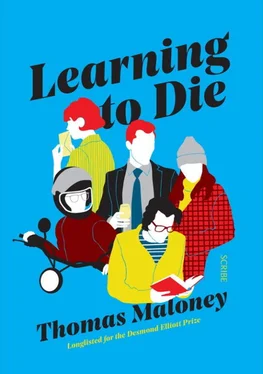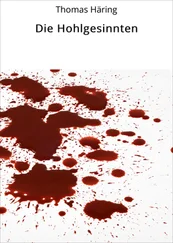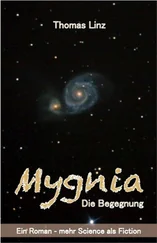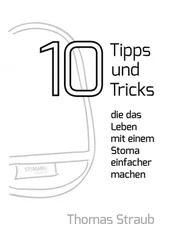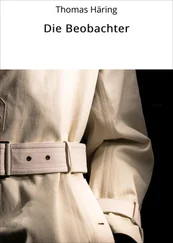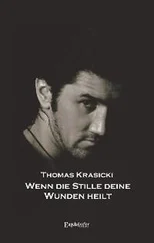Dan looks tired in the car — they share the driving — but he’s on good form when they arrive. They’ve decided not to mention his appointment. They’ll tell her if she notices anything and asks, but she doesn’t. Nor does she mention the dreaded having of babies. In fact, she seems to forget Nat and Dan’s circumstances and the lives they lead in Reading, and talks instead about the local gossip, about family overseas, and about the past. She’s put on another few pounds, and her arms are going flabby. Her parsnips are still heavenly, though.
Poor Mum. Who would she be, what life would she be leading, if Dad hadn’t died? She reminds Natalie of a child in a playground game who’s ‘out’ right at the start, and just waits glumly by the wall while the other girls play on. She’s misinterpreted the rules: she could have rejoined if she wanted to.
Several glasses of wine later, Natalie closes the flimsy door silently but firmly and lowers herself onto the sofa bed that takes up most of the tiny spare room.
‘Thanks, love,’ she whispers in the darkness.
‘For what?’
They hear her mum cough, and the stairs creak. Natalie snuggles up to Dan, slides a hand down his stomach and onto his boxers.
‘What are you doing?’ he breathes.
‘Nothing.’ His dick swells — poor thing can’t help it.
‘Nat. Your mum?’
‘We can be quiet.’
Her mum is still moving around in the next room. But Natalie is thirty-one years old and has every right to fuck her husband. If Mum has a problem with it, she should finally see about getting herself a boyfriend. A dance class. The internet. Life goes on.
They have sex with the volume switched off. She gets a bit carried away, but the sofa bed doesn’t creak. It’s like being a teenager again.
‘Shit doesn’t just happen, actually,’ preaches Richard Saunders, father of James F. This is one of his most infuriating catchphrases. He’s arguing with his cousin, Joe, visiting from Cork.
‘Jaysus, Richard, what made you such a hard-hearted man?’ These disagreements on the interpretation of the family history are an annual tradition. As are the childhood reminiscences which Richard intends as a lesson for his no-hoper son.
‘In the fifties,’ he begins, as always, ‘one of our favourite games was to take a paper bag — we didn’t have polythene ones — and catch as many wasps as we could, one by one, until they were roaring like a jet engine. Then you’d twist the top and hide it in someone’s desk at the start of a lesson—’
‘Or how about the chickens’ feet?’ suggests Uncle Joe, playing along. ‘When you came to stay with us on the farm, if my mother killed a chicken she’d give us boys the feet to play with. You could make them open and close by pulling the tendons, like little wires.’
‘We did a lot with a little in those days, didn’t we?’ says Richard. ‘Now it’s all video games and iPods.’ They both look at James.
‘Is it?’ says James. Who, apart from Dad, calls them polythene bags? ‘I wouldn’t know. I don’t have kids.’
‘Fortunate,’ retorts his father under his breath, ‘given the circumstances.’
Later, Uncle Joe brings out his fiddle. James has a hard English heart of his own, but it melts at the bouncing, tripping tones, timeless as birdsong, butter-knifing down the sad, swift decades. ‘I wish, I wish,’ sings Joe, in a cracked voice that suits the song perfectly, ‘I wish in vain, I wish, I wish, I was a youth again.’
James, slumped awkwardly on the same sofa that hosted his first kiss fifteen years earlier — Emma was her name — and on which he and Becks many times sat and talked and once made love, and on which he read Virginia Woolf’s The Waves in one spellbound sitting, and on which, fuming after a family row, he first formed his decade-old resolution never to compromise, never to submit, and never to take his father’s advice, now with a glass of the old man’s Jameson in his hand, feels the pang of mortality.
This song nails crosses one and two. But it’s well-worn and trite, and affecting only when you’re drunk — and there is cross three. Nothing new: incitement and curse.
‘So. Mikey. How’s work? Good year?’
Big Vince, Mike’s dad, has litmus lips — blue when sober, they flush to a more conventional pink after a couple of pints. His blotchy skin seems half obscured under a permanent thin dusting of builders’ plaster. Yet despite questionable health he is immensely strong. A memory: Dad teaching him to saw timber when he was about twelve. Mike would do ten hard thrusts, and then his dad would bite through the same distance with a single smooth stroke. ‘One day, I’ll be able to do that,’ he thought then, marvelling at the mystery of manhood. He was wrong: at thirty-three, with as much manliness as he’s likely to acquire, he’s still a child. A crafty child, but a child nonetheless.
‘It was a pretty good year for me.’ On the coffee table is a dish filled with gold and silver: chocolate money.
‘How does it feel to be a big, swinging plonker? Isn’t that what you are now?’
‘I’m a trader. But I still just run Crispin’s system — I don’t make trading decisions myself.’
‘Funny bloke, that Crispin,’ muses Vince. ‘Drove a TVR but didn’t know how to change a tyre. Sold up and buggered off to Hong Kong. Who’d have thought my son’s entire career would come down to him?’ Mike doesn’t like the sound of that. Entire career. It’s early days.
‘I owe him a lot.’
‘How much? I mean, how much are they paying you these days? I’m your father — you can tell me.’
‘I’m doing well. I haven’t got my bonus yet.’
‘But you must have a sense .’ He stresses that word, showing big, sound, yellow teeth. For one Oedipal moment, Mike imagines his father’s enormous skull. The timber-sawing anecdote told at the funeral. He smiles nervously.
‘Dad, if you want to know whether I’m earning more than you, yes I am. So if you’re ever in trouble, let me know.’ He stands up. ‘Can I get you a mince pie?’
‘Insolent little shit,’ says his dad, perhaps half joking. ‘Never built so much as a Lego tower.’ Too true.
In a closed system, disorder must increase. Even Dan Mock’s father’s garage, Exhibit A, would, if locked up for long enough — a few centuries — exhibit some traces of disorder. A drip from a leaking roof, perhaps, scudding down the tiny drawer-fronts and causing their handwritten labels to run; or a draught rolling the well-sharpened pencil off the workbench and shattering the lead; or a mouse eating through the homemade pulley-based ceiling storage to bring a pressure washer or pair of trestles crashing down. Exhibit B is the human body: immeasurably higher pinnacle of order; same laws. The universe does not permit such anomalies to endure. Et cetera.
Dan did not expect the outriders of disorder to be already at his door, though his limp has, he thinks, improved. That doesn’t stop his dad noticing it immediately — Dan says he isn’t sure what it is but has an appointment to get it checked out. ‘Good,’ is Dad’s reply, with a concerned pat on the shoulder. He considers Dan to be a chip off the sensible old block.
Dan takes a walnut from the bowl on the sideboard and fits it into the nutcracker. He has a delicious premonition of the nut’s stout resistance, its sudden yielding to ruthless mechanics, the mysterious, brain-like kernel — its feel in the fingers and in the mouth — and the dry-mouth aftertaste. Then he remembers the weakness in his hands, quietly replaces nut and nutcracker in the bowl, and takes a foil-wrapped chocolate instead.
He can hear Natalie in the kitchen with his mum, attempting with a light, unobtrusive touch to prevent the usual culinary disaster. If he does have MS or Parkinson’s, her life will change too — he’s told her this. But she doesn’t seem worried.
Читать дальше
